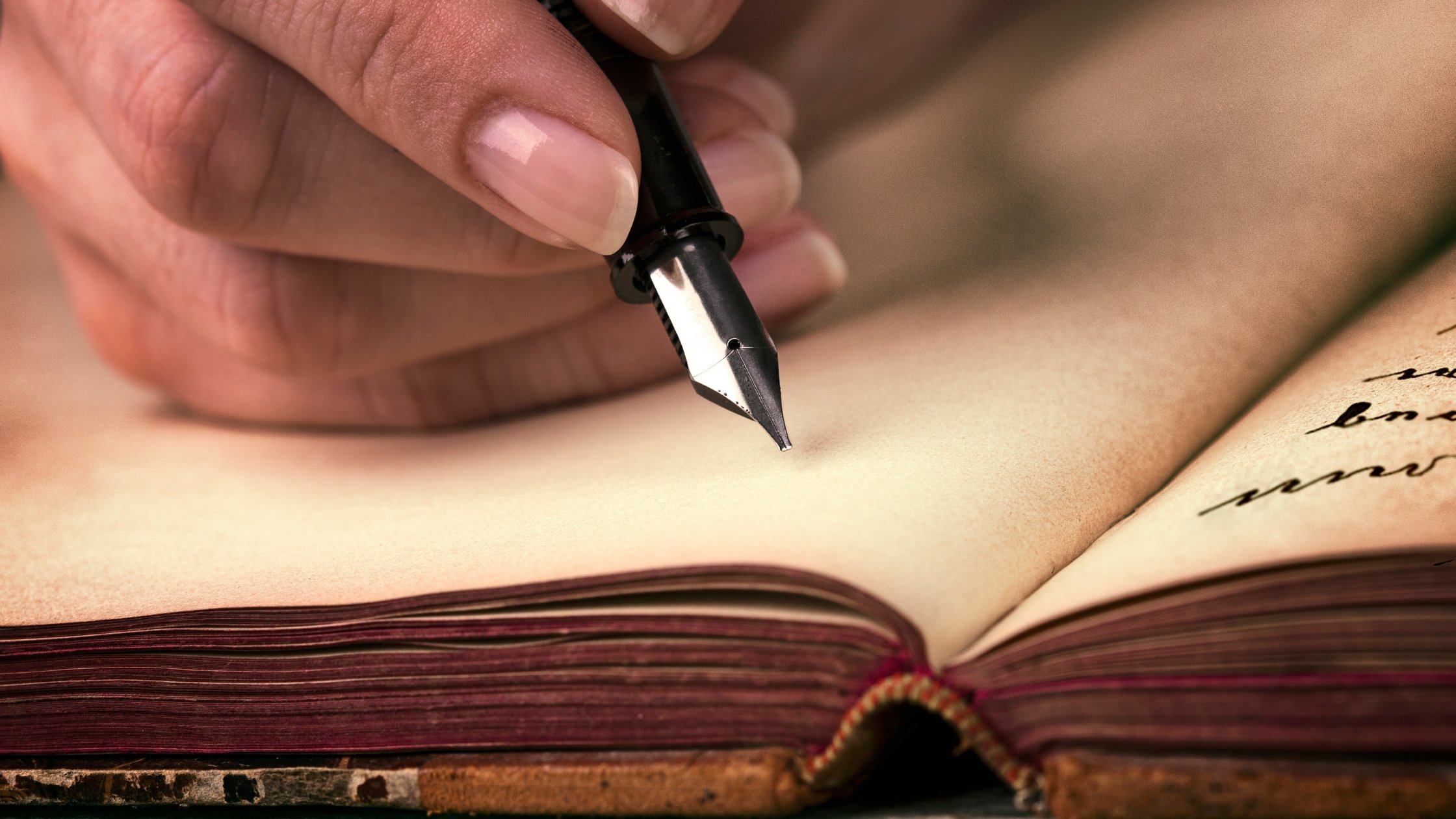There are a lot of bad feelings that surface after a divorce. It is necessary to get these unpleasant emotions out through a healthy outlet. Keeping a journal and regularly expressing your thoughts and feelings is one method for doing just that.
Keeping a journal during a divorce or separation can help you work through feelings and make lasting decisions about parenting, communication, and other vital issues. Journaling, however, has applications beyond the individual. When you do it properly, you’ll see the rewards. Are you struggling to create entries for your divorce journal? If so, then read the article. It will help you write a good journal and keep you out of the situation efficiently.
Reasons to Keep a Journal Before, During, and After a Breakup
Journaling is a means to let out emotions in a secure location. Your words may come back to haunt you if you air your grievances on social media or to someone you can’t trust. In a journal, you have full license to say whatever you wish. Doing so will also help you recognize what you genuinely think. Once the ink flows, you may read anything you’ve written and say, “Wow, I didn’t realize I felt that way.”
Good memories recall
Keeping a journal is another excellent way to mark important life events. Keeping track of your divorce circumstances might also serve as a record of your development. As you transition from “married” to “separated” to “divorced,” you’ll experience a lot of upheavals. Keep track of your progress and the victories you’ve had, whether big or small. So, keeping a journal can help you develop personally and professionally.
Good sleep
Keeping a journal after a breakup Writing in a journal before night typically helps you sleep. When you let go of the day’s troubles, you may relax and sleep better without tossing and turning over the same problems in your head.

If you allow yourself to write freely, you’ll likely focus on what’s most meaningful to you at the time. Even if you don’t give them much thought at the time, reading your old works might offer you a good idea of the things you value most in life. For example, if you find yourself repeating the concept of establishing your own business repeatedly, it’s apparent that it’s a desire that’s significant to you. You may take a chance and see what occurs when things are chaotic because you have less to lose.
Importance of Journaling For Yourself
If you’re not ready to collect your thoughts at the end of the day through writing, you may find it challenging initially. It can make you feel ridiculous to describe your various experiences today. We’ve already highlighted the multiple benefits of maintaining a divorce notebook, but these are the most potent reasons to consider overcoming your initial reluctance to write about yourself.
Heal from insight
Keeping a journal of your feelings and ideas might help you focus on the present as it unfolds. When you start keeping a journal, you’ll be teaching your brain to file away specifics about how you felt and responded to the people and situations in your daily life. By improving your memory this way, you may even be able to rein in negative responses to stimuli in the future. This is because you’ll better grasp your innate reactions to specific “threats,” giving you the money to respond when you would have reacted hastily
Write contentious issues
Occasionally, we must consider controversial topics that we’d rather avoid. However, when feeling emotional, we’re more likely to jump to a conclusion without thoroughly investigating how we might have contributed to the disagreement. By returning to an issue after the dust has settled, you’ll be better able to think honestly and openly about conflict and the conditions that contributed to it.
Keeping a daily log
Even if you don’t learn much about your inner life by keeping a notebook, it’s still a valuable tool for recording mundane details of your day and random thoughts that you might find interesting years from now. An easy technique to be more at the moment is to jot down amusing incidents, such as a joke your kid told you or an unusual sight you observed on your way to work.

Read on to learn why keeping a journal during your divorce is so helpful to your emotional health. There’s no reason to procrastinate when the payoff for getting started is this good. Start today.
Your brain believes whatever you tell it
Writing reinforces it. Repetition makes it stronger. Putting in writing the things you’ve done to improve your mental health—resolutions you’ve made, steps you’ve taken toward letting go, a mental reconstruction of your marital history—will help you better appreciate how you arrived. Putting thoughts and ideas down on paper establishes a robust mental commitment pattern. Re-discovering and re-reading it in earlier similar entry types of cement it. Remember that your brain does not differentiate between positive and bad ideas and behaviors. Sure, vent your frustrations on paper, but prioritize storing your more expansive, confidence-boosting mental processes.
Journaling helps you to relax
Your brain craves routine and rewards you for the effort by relaxing. Your brain, the command center above your head, constantly monitors your everyday routine in search of habits and routines. Again, a red indicator is that it doesn’t favor either healthy or bad practices, making it challenging to break harmful ones. Divorce can disrupt the status quo. Journaling daily at the same time can help you overcome this problem. You’ll start looking forward to it after a few days because your brain will be relieved to have something consistent. You’ll relax during journal time. You can bank on just one little thing happening every time: reduced nervousness and restored rationality.
Let go of the things
You’ll recognize the ideas and patterns you want to keep using and those you can drop. Journaling helps you see the pathways you want to go again and those with “Danger! Do not retrace these steps!” You can intentionally work with the activities that aided you and avoid the trap of terrible choices you made previously.
Personal consoler
keeping a journal is like having your counselor. Like working with a skilled therapist, you leave the session with less anxiety, but you don’t have to pay for it. Your self-confidence continues to build as you move forward with life decisions based on what’s best for you from your own experience. You grasp patterns’ ebb and flow through your observations of your life.
When you can’t speak
A final piece of advice for those times when words fail you we’ve all been there. The experts advise us to practice writing the word “writing” repeatedly. It makes no difference if any thoughts enter your mind at all. There will be more fruitful days ahead to make up for this one. The idea is to assure your brain that your new routine will persist no matter its challenges.

Those who have journaled in the past may find it easy. Writing down your feelings and thoughts may seem unusual if you’ve never done it before. Here are a few pointers to get you going:
Choose a format you will use
For example, some people detest writing with pen and paper. It’s OK to type if that’s how you’d instead communicate. Any ordinary notebook will do if you prefer to write things out by hand. But perhaps you love writing in a leather-bound volume instead. Use your gut instincts.
Address someone
“Dear Diary” is optional. But for some, it helps to imagine they are writing an actual letter to someone. If so, you may find it most straightforward to choose a neutral person in your life or someone who is no longer living. You can also write to a character you’ve created entirely in your mind. At times, communicating with your ex through written correspondence is the best course of action. You may experience tremendous relief after expressing your frustration and sorrow. Just don’t send it.
Express your feelings
Be free. Say anything. The word “should” is not present. No one will read this but you. It’s OK to say the things you’re not allowed to tell anyone. Good penmanship and proper grammar are less of a priority. You really might not feel like writing on some days. Maybe you want to sketch instead.
If you still have difficulties knowing what to write, here are some approaches:
- Write where you are right now in life. How do you feel about that? In what place do you see yourself happiest?
- Keep a diary in which you record your progress toward one or two goals.
- Try writing in the third person.
- Make a list of all the things you have to be thankful for.
Summary
Truth be told. No matter how peaceful or destructive your divorce is, it is still tricky. It’s natural to have a wide range of feelings during the divorce process, from joy at your newfound independence to depression at your isolation to reflection on your time spent together as you try to make meaning of the breakup. Separation anxiety has set in. Divorce is stressful, but keeping a journal can help you cope without resorting to drugs or at least minimize your reliance on them.
Recovering from a divorce more quickly can be achieved by practicing self-care and developing a strong sense of independence. Daily journaling is a great way to reflect on your day and gain perspective. I recall how I accomplished that.” You’ll rocket to a new level of power when you do this.
Get yourself a lined notepad from any drugstore or office supply store. Do not wait until tomorrow morning to begin your journal. As the week progresses, you will notice that your anxiety levels have decreased alongside the valium doses. Get ready for your mind to clear and your independence to grow.



